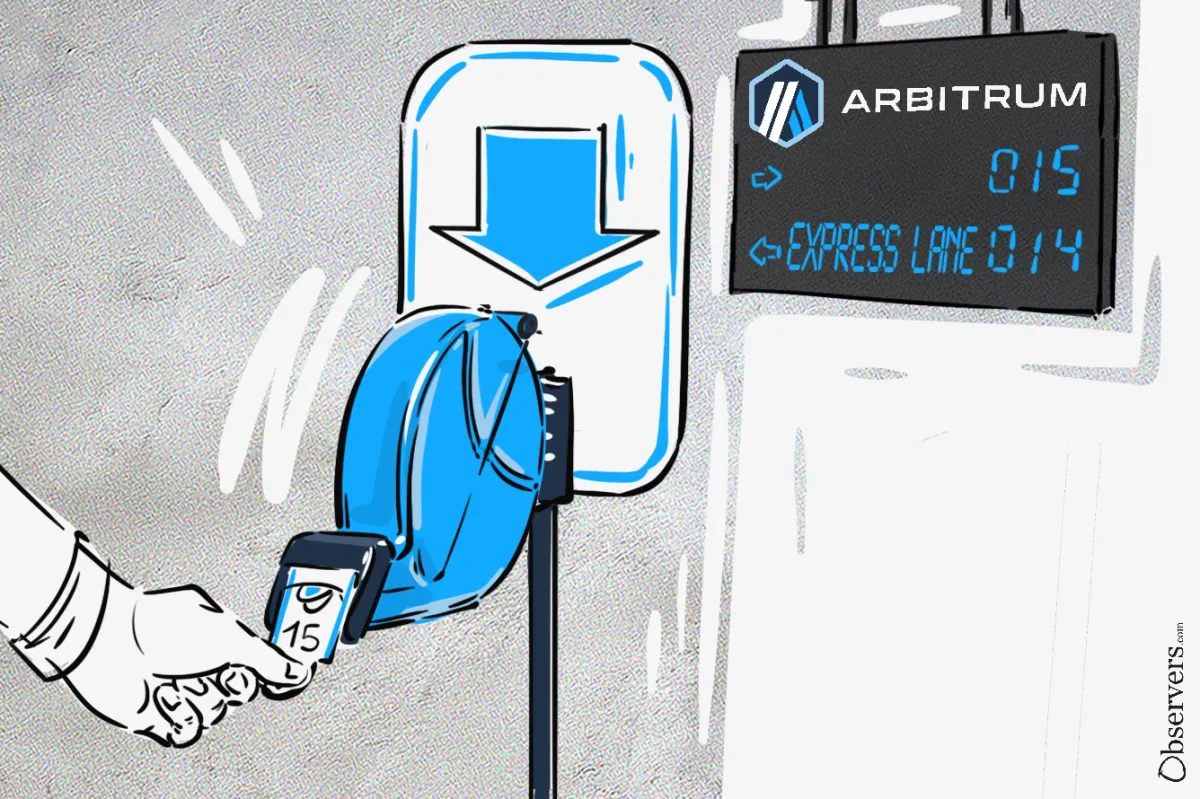
Offchain Labs has announced the launch of Timeboost on Arbitrum, a new transaction ordering mechanism that is also generating additional revenue for the Arbitrum DAO.
Before this update, Arbitrum’s sequencer ordered incoming transactions on a first-come, first-served (FCFS) basis. That design wasn’t accidental—it enabled fast block times, sometimes as low as a hundred milliseconds, while offering protection against harmful forms of MEV.
While the FCFS model helped maintain speed and user protection, it also led to problems. Nearly all MEV on the network was being captured by searchers who invested heavily in hardware and spammed the chain to win latency races. This behavior created unnecessary strain and contributed to network congestion.
A possible fix could be using Priority Gas Auctions, where users bid with gas fees to get their transactions processed first. It adds some structure to the competition, but it might also bring back the same MEV problems, like frontrunning and sandwich attacks, that the original first-come, first-served model was trying to avoid.
Express Lane for Traders on Arbitrum
This is where Timeboost comes in. It's designed to offer the benefits of Priority Gas Auctions while still protecting users from the most harmful forms of MEV.
With Timeboost, users now have two options for submitting transactions to the sequencer:
- Standard path – functions exactly as before.
- “Express Lane” – a new, auction-based path that gives transactions a brief time advantage.
Access to the Express Lane is granted through a live auction. The winner gains temporary control of the lane and receives a small timing edge—around 200 milliseconds—to submit transactions. However, this advantage doesn’t offer deeper control:
- The auction winner cannot view pending transactions from others.
- There’s no guarantee their transaction will be placed at the top of a block.
This limited advantage preserves fairness while enabling competition.
Arbitrum Eyes Revenue Growth with Timeboost Rollout
With the new system, the Arbitrum DAO can also monetize fast access to its sequencer while keeping user protections in place. It is a middle ground, allowing users to compete for speed without compromising fairness across the network.
The vast majority of users will still submit transactions through the standard route. The Express Lane is primarily designed for sophisticated on-chain traders and MEV searchers who are looking for an edge.
At the moment, the Express Lane generates approximately $300 per day for Arbitrum, with total revenue since April 17 reaching around $29,500. At this pace, the new mechanism is on track to bring in at least $1.5 million annually, but that figure could rise significantly, as the system is still new and traders are only beginning to adopt it.
What Else Is Arbitrum Working On?
Arbitrum stands out in the crowded Layer 2 space with several key features beyond just transaction order optimization:
- In 2023, it introduced Orbit, a framework for deploying custom L2s or L3s on top of Arbitrum. It is used by fully customizable blockchains such as "appchains" for games, DeFi protocols, or enterprise apps that want their own chain but still benefit from Ethereum security.
- Arbitrum Nova is an ultra-cheap blockchain optimized for very low-cost transactions. It uses a Data Availability Committee (DAC) instead of posting all data to Ethereum. It is not quite as decentralized as Arbitrum One, but it is significantly cheaper. Reddit's Community Points (like Moons) are built on Nova.
- Arbitrum has a live and well-funded DAO that controls upgrades, treasury, and initiatives like the Short-Term Incentive Program (STIP) and now Timeboost revenue.
- Arbitrum uses a centralized sequencer like most rollups, but a fully decentralized sequencer model is being actively developed. The team has already published research and prototypes. The goal is to eventually allow anyone to participate in sequencing, similar to Ethereum validators.

